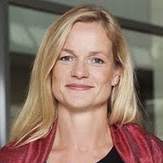Azerbaijan, Baku, April 30 /Trend, E.Ostapenko/
Special attention should be paid to improving the educational system under the joint activities of the Bundestag and the South Caucasus countries, said Deputy-Chairman of Parliamentary Friendship group for Relations with Southern Caucasus Viola von Cramon.
"There is a big need to deepen contacts among the scientific community, invite people to Europe, Germany, and give them good knowledge about the sciences," Cramon said in an interview with Trend after his first visit to the South Caucasus in mid-April.
The German delegation discussed education along with other urgent issues with Azerbaijan's foreign and deputy economic development ministers. The Friendship Group will seek to expand student exchange programs, Cramon said.
"Azerbaijan's education system is not at the proper level and we should focus on its development and modernization," Cramon said, noting that in education the country can rely on genuine support from the EU which already realizes several educational projects in Azerbaijan.
The Bundestag forms such Friendship Groups in the beginning of each legislation period. The seventeenth and current legislative period in Germany began in September 2009. Cramon, who represents the Green Party, is one of four co-chairs of the South Caucasus Friendship Group. The Group includes 29 MPs.
Cramon called her visits to Azerbaijan and Georgia interesting and effective.
Azerbaijani MPs shared their expectations and plans for further joint work with the German delegation. Cramon said the Azerbaijani MPs have tried to demonstrate their efforts over the past 5-10 years to improve social infrastructure, education and water quality. They took the German MPs on a trip to rural areas to directly acquaint them with their work.
Cramon also believes that along with scientific, ecological and educational cooperation, a more pragmatic approach to work should be found as a mediator in regional conflicts, noting that this is only an idea and it is too early to talk about details.
She said the Bundestag is not very much engaged in the resolution of the Nagorno-Karabakh conflict, noting that the main instrument for the settlement should remain the OSCE Minsk Group which holds the peace talks since the ceasefire agreement was reached by Armenia and Azerbaijan in May, 1994.
The conflict between the two South Caucasus countries began in 1988 when Armenia made territorial claims against Azerbaijan. Armenian armed forces have occupied 20 percent of Azerbaijan since 1992, including the Nagorno-Karabakh region and 7 surrounding districts.
Speaking about the EU role in the South Caucasus, Cramon said she would like to see EU greater involvement in technical and pragmatic issues, where participation would benefit the people.
"We need to urgently address the issue of Azerbaijani IDPs. They have lived in tough conditions for many years, and this is not the best prospect, in my opinion," Cramon said.
The EU's role as a mediator in the post-conflict situation in Georgia was also the subject of talks during the German delegation's Tbilisi visit. The Georgia visit also included a trip to Abkhazia.
Speaking about the post-conflict situation in Georgia, Cramon said it is worth adhering to the Geneva talks, which bring together representatives of all sides of the conflict (Georgia, Russia, Abkhazia and South Ossetia), as well as international mediators (EU, OSCE and UN).
There are different levels of addressing the problems that arose as a result of the 2008 August conflict, underscoring the diplomatic and parliamentary levels.
Cramon said she wanted to get a general idea for the political situation after the conflict, to learn about the humanitarian situation in Gali district of Abkhazia and study the status of the Georgian minority. Returning to Tbilisi, the parliamentary delegation discussed the political situation in Georgia with government officials, and opposition party and civil society representatives.
The group will visit the region periodically. Cramon said the next visit is planned for autumn.
Do you have any feedback? Contact our journalist at: [email protected]






